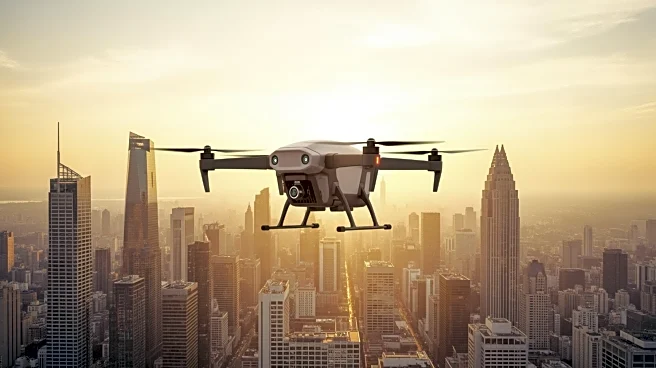What's Happening?
DHL Express is investing $90 million to expand and modernize its operations in the New York City area. The investment includes relocating its Manhattan service center to a new facility in Jersey City,
New Jersey, which will feature advanced automation and electric vehicle charging stations. The new site aims to double package sorting capacity, enhancing delivery speed and efficiency. Additionally, DHL is expanding its Brooklyn facility and improving air network connectivity by adding a direct flight connection between its Cincinnati hub and Newark Liberty International Airport. These strategic moves are designed to optimize operations and meet growing demand in the region.
Why It's Important?
This investment is crucial for DHL to maintain its competitive edge in the logistics industry, particularly in a high-demand market like New York City. By enhancing infrastructure and connectivity, DHL aims to improve service reliability and reduce transit times, which are key factors for customer satisfaction. The focus on sustainability through electric vehicle infrastructure and reduced fuel consumption aligns with broader industry trends towards eco-friendly operations. This expansion supports DHL's commitment to providing world-class service and adapting to the dynamic logistics environment.
What's Next?
DHL's investment is expected to lead to improved operational efficiency and service reliability in the New York area. The company plans to continue optimizing its network to handle increasing shipment volumes with greater speed and sustainability. The strategic alignment of flight connections and facility upgrades will likely result in enhanced customer experience and support DHL's growth in international trade. The expansion may also set a precedent for similar investments in other key markets.
Beyond the Headlines
The move towards electric vehicle infrastructure and automation reflects a broader industry shift towards sustainable logistics solutions. DHL's investment in technology and infrastructure not only addresses immediate operational needs but also positions the company for long-term growth in a competitive market. The focus on reducing environmental impact through improved efficiency and sustainability is increasingly important for logistics companies facing regulatory pressures and consumer demand for eco-friendly practices.










